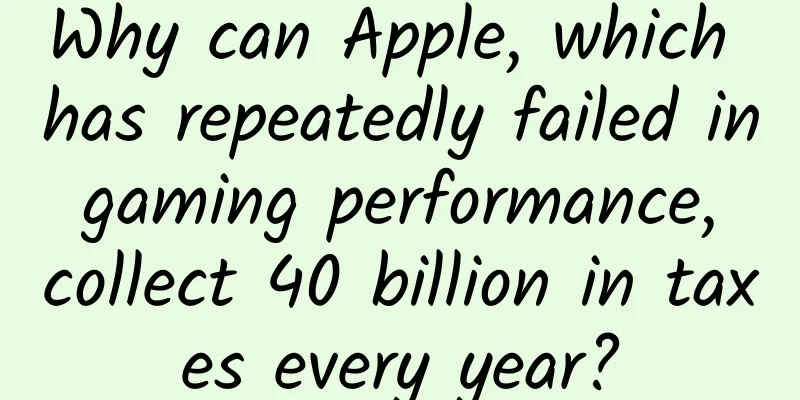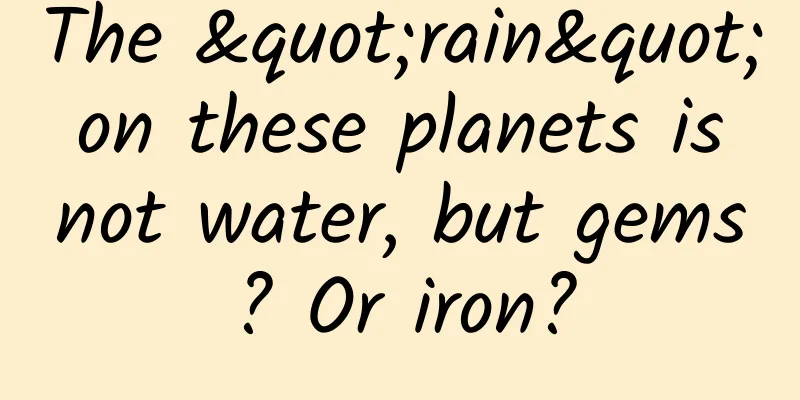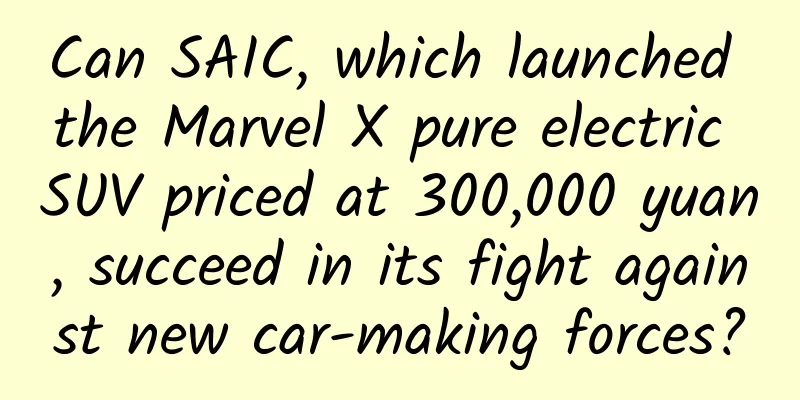Why can Apple, which has repeatedly failed in gaming performance, collect 40 billion in taxes every year?

|
If you ask someone to quickly name three game manufacturers they are familiar with, console players may say Sony, Microsoft, and Nintendo, mobile game players may say Tencent, NetEase, and miHoYo, and PC players may say Ubisoft, SE, and Capcom. No matter what names are given, these companies have at least one thing in common: they all develop their own games. There is a company that does not develop games itself, nor does it publish games, but it makes more money from games every year than the above-mentioned big companies. I believe everyone is familiar with the name of this company: Apple. How exaggerated is Apple's game revenue? Take Tencent, a recognized "money-making machine", as an example. Its game revenue in 2020 was US$29.3 billion, accounting for nearly half of its total revenue, while Apple's revenue from App Store game applications in 2020 reached US$47.6 billion, 60% higher than Tencent. But even so, few people would consider Apple a "gaming company." In the eyes of most people, a so-called game company still has to produce professional game hardware or develop a large number of games on its own. From this perspective, Apple cannot be considered a "game company." But with the huge inventory and strong appeal of the iPhone, Apple has actually already become a groundbreaking gaming giant, and for quite some time, it will be a unique presence in the gaming industry that cannot be ignored. The effort Apple has put into software and its determination to promote Apple Arcade show that it has no intention of giving up on the huge gaming pie. Apple wins by gaming Apple does not publish or develop games, but requires developers to pay a 30% "Apple tax" for every transaction completed through the App Store. Even in-app purchases are not spared. Every year, Apple makes hundreds of billions of dollars in this way. This inevitably gives people the feeling that Apple is "making money without doing anything." It is precisely because Apple has won that rebels like Epic have emerged. Last August, Epic added a recharge channel to its own "Fortnite" that bypassed the App Store. Players paid less and Epic collected more. It was a best-of-both-worlds deal, but Apple, as the "only victim", naturally would not let the matter develop and quickly removed "Fortnite" from the App Store. Epic also quickly took out the satirical video and indictment that it had prepared long ago, and a lawsuit began. Although many of Epic's demands have not been recognized by the outside world (such as requiring iOS to open a third-party app store), it has once again aroused the outside world's doubts about the 30% "Apple tax": Apple seems to have done nothing except providing a listing window, so why should it take a considerable share of the profits? But to be fair, if Apple did not provide developers with this stable distribution environment, developers might not even make 70%. Apple will provide a complete set of comprehensive tools for App Store registered developers: the integrated development environment Xcode can provide everything needed to develop and upload apps on Apple products, and App Store Connect allows developers to easily create App Store pages, invite test users, create promotional offers, set pricing, view app sales trends, and other activities. Apple has also launched a variety of targeted tools for games: for example, it has built a special architecture for compatible game controllers, mice, keyboards and other external devices, allowing any developer to easily add various control methods to the game. For example, in the upcoming iOS 15, Apple has also built in a virtual joystick system, allowing developers to achieve seamless porting. Apple's application interface Metal can also reduce code congestion tenfold when developing games, allowing developers to create more exquisite games. Interestingly, it was Epic President Tim Sweeney who stood up for Metal at Apple's WWDC 2014. In addition to the perfect development environment, iOS has two other reasons that are particularly attractive to developers: first, there are fewer models, making it easier for developers to adapt. Second, Apple's closed-source system makes the risk of piracy almost zero, and coupled with iOS users' stronger willingness to pay, it can protect the interests of developers to the greatest extent. For this reason, many games choose to be released first on iOS, and some smaller developers simply develop games only on iOS. Judging from its efforts in software, Apple definitely regards games as an important part of its business. However, the reason why it has missed out on the title of "gaming company" is not only because it does not develop its own games, but also because of the iPhone's somewhat embarrassing performance in games. Apple phones frequently fail in gaming It must be admitted that Apple rarely promotes the iPhone as a "gaming phone", but as a high-end phone with a starting price of 5,000 yuan, it should not have obvious shortcomings, and it is reasonable for users to have higher requirements for games. In addition, the improvement of the processor is also the focus of iPhone promotion every year, and when introducing the processor performance, Apple will also use new mobile games for demonstration. Theoretically, Apple's A series processors are unrivaled in performance. According to test results from multiple domestic and foreign institutions, Apple's A14 performance is significantly ahead of flagship processors of the same period, such as Snapdragon 888 and Kirin 9000. Even the previous generation A13 can compete with its competitors. But theoretical performance is only a reference. For consumers, actual performance is the most worthy of concern. This year, Apple's A14 had a serious fever. When running "Peace Elite" at the highest quality, the maximum temperature reached 48.8 degrees Celsius. The consequence of fever is frequency reduction. Once the frequency is reduced, the brightness, frame rate and other performance of the game will be affected, which makes people wonder whether they really bought a flagship phone worth 5,000 or 6,000 yuan. This problem does not only exist in the A14 processor. Starting from the iPhoneX equipped with A11, heating and frequency throttling have become chronic problems of Apple mobile phones, which also makes the actual performance of the iPhone far from being "two generations ahead of competitors" as the parameters on paper suggest. Some people attribute this to the immaturity of chip technology, some to the external baseband, and some to the fact that the iPhone's double-layer motherboard design is inherently not conducive to heat dissipation. But the deeper reason may still be the design concept of the iPhone. For mobile phones, thinness, battery life and continuous performance release are a multiple-choice question where you can only choose two out of three or even one out of three, and Apple obviously prioritizes thinness. Taking this year’s latest models as an example, the weight of Android flagships is generally around 200 grams, while the iPhone 12 weighs only 160 grams, and the iPhone 12 mini is only 133 grams. The lightweight body and Apple's excellent industrial design capabilities make the iPhone 12 series look very refined. This is certainly not wrong, and it is also the reason why many consumers continue to buy Apple products, but the price paid for this is the sacrifice of battery life and performance release. Therefore, it is the iPad that can truly demonstrate the gaming potential of the A-series processors, among which the iPad mini is also known as the best gaming console: its body is not so big that it is difficult to hold, but at the same time it is large enough to ensure heat dissipation, allowing performance to be continuously released. However, this choice also makes the iPhone's product concept seem somewhat fragmented: on the one hand, it uses the processor with the strongest theoretical performance, but the processor cannot run at full power in most cases. After all, there are few applications on mobile phones that test processor performance more than games. So what is the point of using such a powerful processor? As a winner of Toutiao's Qingyun Plan and Baijiahao's Bai+ Plan, the 2019 Baidu Digital Author of the Year, the Baijiahao's Most Popular Author in the Technology Field, the 2019 Sogou Technology and Culture Author, and the 2021 Baijiahao Quarterly Influential Creator, he has won many awards, including the 2013 Sohu Best Industry Media Person, the 2015 China New Media Entrepreneurship Competition Beijing Third Place, the 2015 Guangmang Experience Award, the 2015 China New Media Entrepreneurship Competition Finals Third Place, and the 2018 Baidu Dynamic Annual Powerful Celebrity. |
>>: Xbox One and PS4 are about to become one family in China
Recommend
The game of advertising space allocation in search bidding promotion
People in the industry all know something about t...
The entire process of building and optimizing information flow advertising accounts
Too little exposure and no sales? How to set a re...
Amap announces Easy Travel platform performance: taxi orders increased by 200% in the first half of the year
On July 26, at the 2018 Future Transportation Sum...
You can quickly restore your energy in 10 minutes, and you can do it anytime and anywhere. If you don’t know this method, you will miss out.
If I don't take a nap, I'm afraid I'l...
3 factors that affect product promotion and conversion (Part 2)
Many adjustments seem simple, but the leverage ef...
Why can the induction cooker heat up the hot pot, but people’s hands don’t get hot when they put them on it?
When you go to a hotpot restaurant to eat hotpot,...
FAQs about VIVO App Store App Review
Application Review FAQ It is recommended to read ...
Why is Windows making less and less money for Microsoft?
The Windows operating system has always been one ...
How can business services achieve positive growth in search promotion effects? Optimization ideas reference
1. Background Main business: Business service ind...
No KOC, no community
KOC , or key opinion consumer, generally refers t...
How to plan a marketing campaign that can create multiple values?
The World Cup craze has just passed, and problems...
Which platform brings the best returns for posting short videos?
Nowadays, short videos have become a traffic entr...
Recommend 2 newly discovered treasure APPs, I really love them
The niche APP I shared with you last time was wel...
Are there wandering planets in the universe? Here's everything that "The Wandering Earth 2" didn't say
The earth itself is not a hard rock. 40-70 kilome...
I have already started searching for traffic on WeChat SEO. Today I spent 300 yuan to authenticate a new account.
Friends who follow me may find that I have been u...









